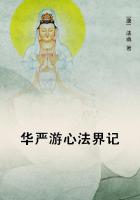Secondly, locomotion must be primary in time: for this is the only motion possible for things. It is true indeed that, in the case of any individual thing that has a becoming, locomotion must be the last of its motions: for after its becoming it first experiences alteration and increase, and locomotion is a motion that belongs to such things only when they are perfected. But there must previously be something else that is in process of locomotion to be the cause even of the becoming of things that become, without itself being in process of becoming, as e.g. the begotten is preceded by what begot it: otherwise becoming might be thought to be the primary motion on the ground that the thing must first become. But though this is so in the case of any individual thing that becomes, nevertheless before anything becomes, something else must be in motion, not itself becoming but being, and before this there must again be something else. And since becoming cannot be primary-for, if it were, everything that is in motion would be perishable-it is plain that no one of the motions next in order can be prior to locomotion. By the motions next in order I mean increase and then alteration, decrease, and perishing. All these are posterior to becoming: consequently, if not even becoming is prior to locomotion, then no one of the other processes of change is so either.
Thirdly, that which is in process of becoming appears universally as something imperfect and proceeding to a first principle: and so what is posterior in the order of becoming is prior in the order of nature.
Now all things that go through the process of becoming acquire locomotion last. It is this that accounts for the fact that some living things, e.g. plants and many kinds of animals, owing to lack of the requisite organ, are entirely without motion, whereas others acquire it in the course of their being perfected. Therefore, if the degree in which things possess locomotion corresponds to the degree in which they have realized their natural development, then this motion must be prior to all others in respect of perfection of existence: and not only for this reason but also because a thing that is in motion loses its essential character less in the process of locomotion than in any other kind of motion: it is the only motion that does not involve a change of being in the sense in which there is a change in quality when a thing is altered and a change in quantity when a thing is increased or decreased. Above all it is plain that this motion, motion in respect of place, is what is in the strictest sense produced by that which moves itself; but it is the self-movent that we declare to be the first principle of things that are moved and impart motion and the primary source to which things that are in motion are to be referred.
It is clear, then, from the foregoing arguments that locomotion is the primary motion. We have now to show which kind of locomotion is primary. The same process of reasoning will also make clear at the same time the truth of the assumption we have made both now and at a previous stage that it is possible that there should be a motion that is continuous and eternal. Now it is clear from the following considerations that no other than locomotion can be continuous.
Every other motion and change is from an opposite to an opposite: thus for the processes of becoming and perishing the limits are the existent and the non-existent, for alteration the various pairs of contrary affections, and for increase and decrease either greatness and smallness or perfection and imperfection of magnitude: and changes to the respective contraries are contrary changes. Now a thing that is undergoing any particular kind of motion, but though previously existent has not always undergone it, must previously have been at rest so far as that motion is concerned. It is clear, then, that for the changing thing the contraries will be states of rest. And we have a similar result in the case of changes that are not motions: for becoming and perishing, whether regarded simply as such without qualification or as affecting something in particular, are opposites: therefore provided it is impossible for a thing to undergo opposite changes at the same time, the change will not be continuous, but a period of time will intervene between the opposite processes. The question whether these contradictory changes are contraries or not makes no difference, provided only it is impossible for them both to be present to the same thing at the same time: the point is of no importance to the argument. Nor does it matter if the thing need not rest in the contradictory state, or if there is no state of rest as a contrary to the process of change: it may be true that the non-existent is not at rest, and that perishing is a process to the non-existent. All that matters is the intervention of a time: it is this that prevents the change from being continuous: so, too, in our previous instances the important thing was not the relation of contrariety but the impossibility of the two processes being present to a thing at the same time. And there is no need to be disturbed by the fact that on this showing there may be more than one contrary to the same thing, that a particular motion will be contrary both to rest and to motion in the contrary direction.
We have only to grasp the fact that a particular motion is in a sense the opposite both of a state of rest and of the contrary motion, in the same way as that which is of equal or standard measure is the opposite both of that which surpasses it and of that which it surpasses, and that it is impossible for the opposite motions or changes to be present to a thing at the same time. Furthermore, in the case of becoming and perishing it would seem to be an utterly absurd thing if as soon as anything has become it must necessarily perish and cannot continue to exist for any time: and, if this is true of becoming and perishing, we have fair grounds for inferring the same to be true of the other kinds of change, since it would be in the natural order of things that they should be uniform in this respect.















